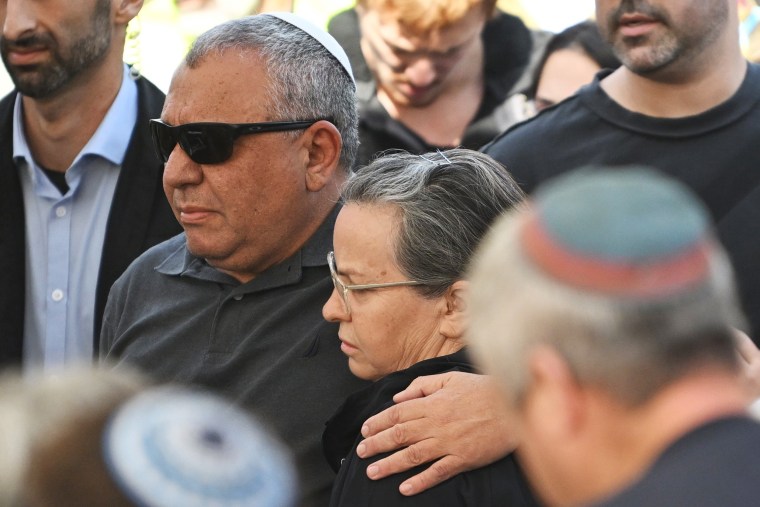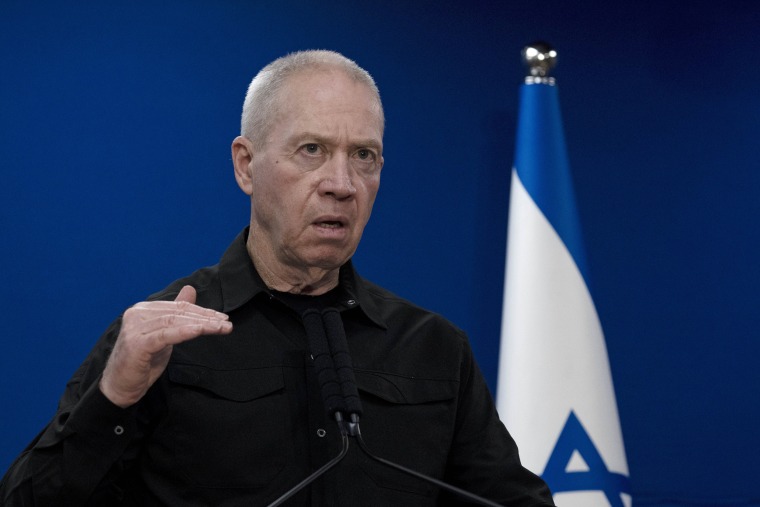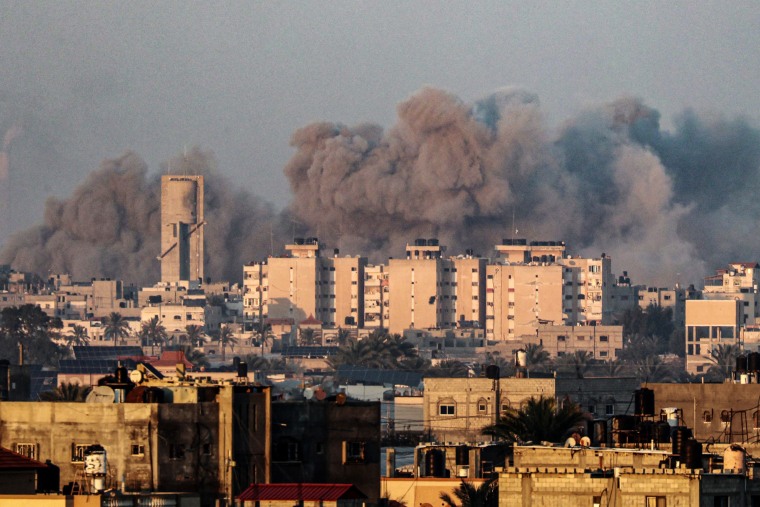Splits appear in Israeli Cabinet as military scales back Gaza offensive
TEL AVIV — New public divisions have emerged in the Israeli government over whether to prioritize the campaign to eliminate Hamas or focus on negotiating the release of hostages in Gaza.
Earlier this week, war Cabinet member and former military chief of staff Gadi Eisenkot, said Israeli leaders needed to “show courage, and to lead to a large deal which will bring home the hostages.”
“Your time is running out, and each day that passes endangers their lives,” he told fellow Cabinet members, referring to hostages being held in Gaza, according to reports from ynetnews.com and Channel 12.
NBC News was not immediately able to independently confirm the comments, and Eisenkot’s office did not immediately respond to a request for comment.
Eisenkot, who won widespread sympathy and support in Israel after his son, Gal Eisenkot, was killed in fighting in Gaza, has been joined by fellow war Cabinet member Benny Gantz in pushing negotiations for a deal to release the remaining hostages.

On Monday, Defense Minister Yoav Gallant announced that Israel’s offensive in Gaza would become less intense, but warned that “political indecision” could imperil its progress.
The decision to end the intensive phase of operations and to withdraw troops has also drawn criticism from members of Prime Minister Benjamin Netanyahu‘s own government.
Pointing to a barrage of rockets fired from Gaza toward Israel on Tuesday, far-right National Security Minister Itamar Ben-Gvir condemned the decision to withdraw some troops as an “acute and severe mistake that will cost human lives” in a post on X.
A spokesperson for Ben-Gvir did not immediately respond to a request for comment from NBC News.
About two-thirds of Israelis, 66%, said they don’t think the military should reduce heavy bombing of populous areas in Gaza, in opposition to U.S. requests, according to a recent poll by the Israel Democracy Institute.
Gallant also said that he had put forward a plan for post-war governance of Gaza that would continue Israel’s military control of the Strip, with Palestinians in charge of civil affairs and the U.S., Egypt and other Arab countries helping lead rebuilding efforts. And he said it was the “duty of the Cabinet and the government to discuss the plan like any other plan, and to determine the goal.”

Divisions over the path forward in Gaza come as Netanyahu faces mounting dismay and frustration over the fact that more than 100 hostages remain in captivity, after some 240 people were kidnapped during Hamas’ Oct. 7 attack.
Around 1,200 people were killed in the Hamas attack, according to Israeli officials. More than 24,000 Palestinians have died in Gaza in the ensuing war, according the the enclave’s health ministry.
Families of many hostages have called for the government to focus on striking a deal with Hamas to see their loved ones freed.
Netanyahu, who faces criminal charges, is facing pressure from far-right members of the coalition to prevent the Palestinian Authority — which governs the occupied West Bank — from governing in Gaza, and has so far refrained from outlining a “day-after” plan.
Yossi Mekelberg, an associate fellow in the Middle East and North Africa program at Chatham House, a London-based think tank, said Gallant’s concerns about the apparent lack of discussion around a post-war plan could be interpreted as a “dig” at Netanyahu, who faces widespread disapproval in Israel. And he said it showed the “direction” of discussions within the war Cabinet.

“Gantz and Eisencot are sort of in agreement,” Mekelberg said, adding that the divisions within the war Cabinet appear to be “between them and Netanyahu and Gallant — and in between Gallant and Netanyahu.”
Gallant emphasized the need for continued military operations.
“Only military pressure will achieve the goals of the war, the elimination of Hamas and return of the hostages,” he said, stating that “if the fire ceases, the fate of the abductees will be sealed for many years in the captivity of Hamas.”
Read More: Splits appear in Israeli Cabinet as military scales back Gaza offensive

